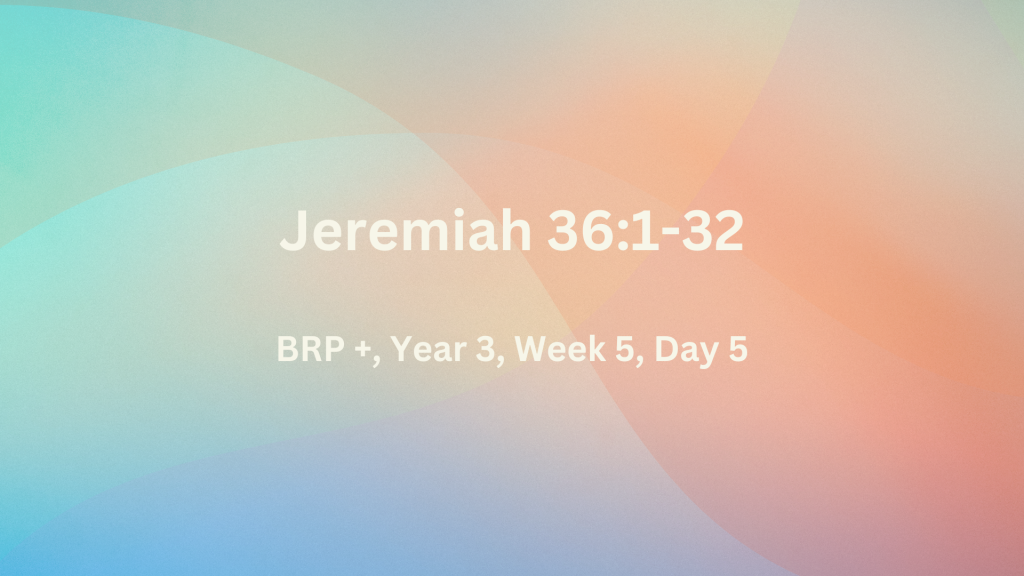Jeremiah 36:1-32
Q.1. What part did Baruch play in delivering God’s message to the people? What was God hoping for? – (Jer.36:1-10)
Jeremiah was under arrest during the reign of Jehoiakim, so was unable to deliver God’s message himself. He called on Baruch who – … wrote on a scroll at the dictation of Jeremiah all the words of the Lord which He had spoken to him (Jer.36:4). Jeremiah asked him to proclaim this message – Baruch … did according to all that Jeremiah the prophet commanded him, reading from the book the words of the Lord in the Lord’s house (Jer.36:8). God still hoped that the people would repent – Perhaps the house of Judah will hear all the calamity which I plan to bring on them, in order that every man will turn from his evil way; then I will forgive their iniquity and their sin (Jer.36:3). Jeremiah hoped desperately that the people would cry out to God – Perhaps their supplication will come before the Lord, and everyone will turn from his evil way, for great is the anger and the wrath that the Lord has pronounced against this people (Jer.36:7).
Q.2. How did the Scribes and officials respond to the message? Why did they warn Baruch to hide himself? – (Jer.36:11-20)
The message, dictated by Jeremiah and delivered by Baruch, brought fear and consternation in the Scribes and officials. They recognized that the prophecy had come from Jeremiah. They knew about the arrogance of King Jehoiakim and realized God’s servants were in danger. Consequently, they advised Baruch and Jeremiah to hide themselves. They also deposited the scroll for safe keeping with Elishama the scribe.
Q.3. What was King Jehoiakim’s response to the message of the scroll and the pleading of his advisors? – (Jer.36:20-26)
When Jehoiakim heard the message of the scroll, he sent for it. As each page was read, Jehoiakim brazenly cut the scroll in pieces and threw it into the fire, from which he was warming himself. 25 Even though Elnathan and Delaiah and Gemariah pleaded with the king not to burn the scroll, he would not listen to them (Jer.36:25). He doubtless would have murdered Baruch and Jeremiah – but the Lord hid them (Jer.36:26).
Q.4. How did God respond to the burning of the scroll? Was the message the same? – (Jer.36:27-32)
The Word of the Lord came in response. God instructed Jeremiah to dictate a new message on a scroll, to replace the one burned up by King Jehoiakim (Jer.36:23, 28, 32). Was it the same? God in no way weakened His message, but instead added specific curses against the king – 30 Therefore thus says the Lord concerning Jehoiakim king of Judah, “He shall have no one to sit on the throne of David, and his dead body shall be cast out to the heat of the day and the frost of the night. 31 I will also punish him and his descendants and his servants for their iniquity, and I will bring on them and the inhabitants of Jerusalem and the men of Judah all the calamity that I have declared to them—but they did not listen (Jer.36:30-31). The lesson is clear: To oppose God’s message is pointless and will incur a stronger judgment for the disobedient (c.f. Lk.12:47-48).

